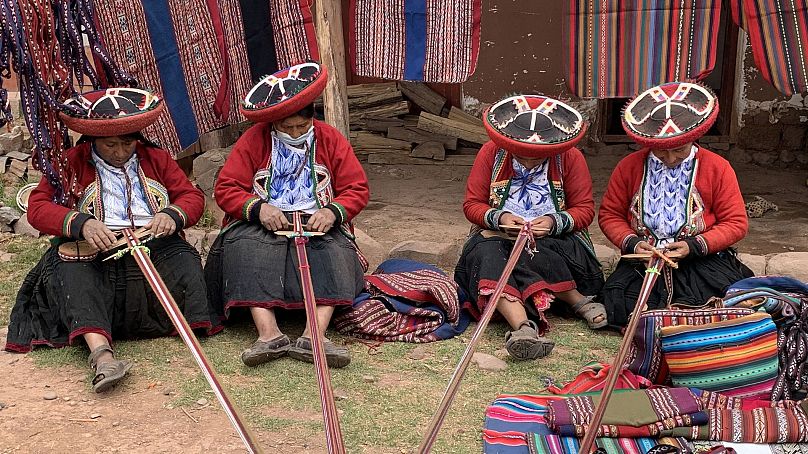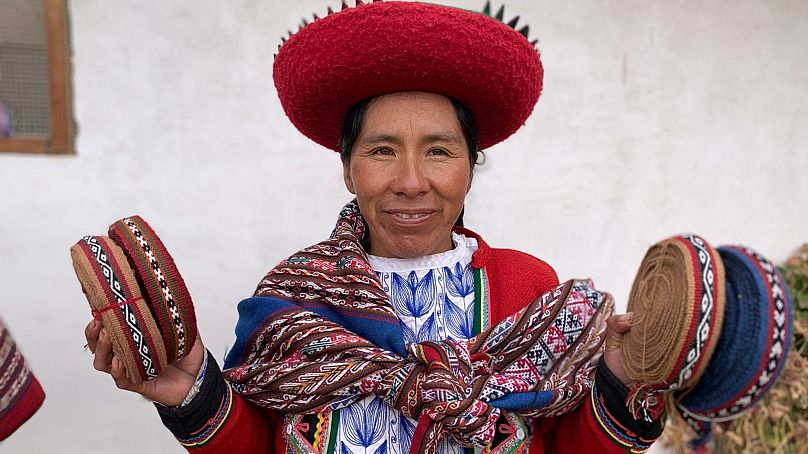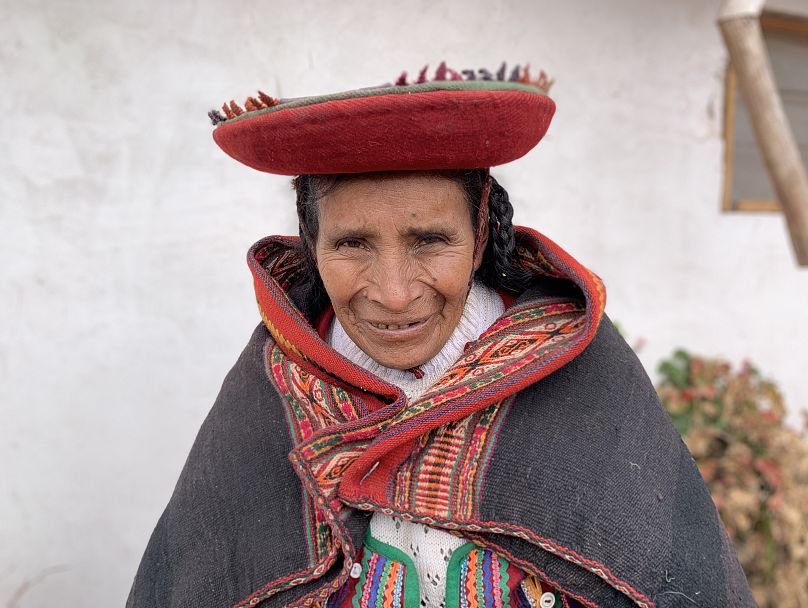This volunteer decided against returning home from Peru and set up a slow fashion brand with some of the women there.
A woman from London decided against returning home from her volunteering placement in Peru when the pandemic hit. Now, she’s launching a slow fashion brand with women from rural communities there.
Born and raised in Valencia, Spain, Elena Brook-Hart Rodriguez moved to London after graduating university. At the age of 30, she experienced burnout and decided to quit her job as an advertising strategist and go travelling to clear her mind. So, ready to do some soul searching, she signed up to a volunteering programme in Peru.
“I had never volunteered before, but liked the idea of being able to use my knowledge and experience to help other people while learning about their culture,” she says. She never would have imagined she’d be setting up a slow-fashion brand with the women she helped.
Elena arrived in Peru in February 2020, just as coronavirus began to spread across the globe. She was placed about an hour outside of Cuzco, which is the base for tourists coming to hike the Inca Trail, and was tasked with helping small businesses in the remote regions of the Andes.
Coronavirus in Peru
Peru has been the worst hit country in Latin America, with 1.24 million cases of COVID-19 and more than 43,00 deaths. The government responded with lockdowns and curfews to curb the spread of the virus. The rollout of the Chinese-developed Sinopharm vaccine began on 9 February 2021.
“It was scary at times because of the lack of information and the uncertainty as to how it would evolve,” says Elena.
“When things got really bad, the army was on the streets checking IDs, as we weren’t supposed to leave our homes unless it was to buy essentials or go to the doctor’s. They would check and stop you if you were too far away from your home.”
Empowering women
The 30 year-old bilingual started with teaching English to women and children, before realising her background in advertising could be made useful elsewhere. So, she began teaching the women how to use a bit of graphic design so they could promote their tourism packages.
Seeing how the pandemic had impacted small businesses there, Elena insisted on staying to help, despite the volunteering organisation closing down and advising her to fly home.
“I felt there was a lot more I could do. It wasn’t fair to leave these women now that things were getting tougher than ever, and they were even more isolated,” she says.
Helping some of the local women get back on their feet was the start of something bigger for Elena, whose career was left hanging in the balance after quitting her job.
Creating opportunities for women in Peru
When tourism was closed in Peru, this added an extra burden for rural families - many of whom were already struggling to find work opportunities.
“There is a lot of competition now in agriculture and we don’t have anywhere to get money from,” says Elsa, one of the women Elena worked with. “We have our crafts, but we don’t have anywhere to sell them, and now with this quarantine it’s worse. Our husbands do building work and work the fields here in the community, but we can’t grow in big quantities, so it’s for self consumption,” she says.
“I met women who were determined to work hard to give a better future to their families and contribute to their family finances,” says Elena. “I also learnt about their traditions and how important they are for them.”
With markets closed and tourism halted, Elena set out to find a way for these women to sell their crafts for a fair price.
Handmade Stories
After working with the women, Elena came home to London and is now preparing to officially launch Handmade Stories - a slow-fashion website selling limited-edition, handcrafted artisan products made by the women.
“We are called Handmade Stories because everything they weave has a meaning, tells a story of how they live, their traditions, each motif stands for something,“ says Elena.
“So far, I've provided work and a fair income to women in rural communities in the Andes, to men in jail who need to support their families, and to a family of traditional jewellers, whom with our help have been able to reopen their workshop, which they had to close due to the pandemic.”
Through this venture, Elena hopes to reach out and offer her support to more remote communities.
Mercedes, a grandmother of 10 says, “I have woven a lot but now I don’t have anywhere to sell my products, so I gift them to my grandchildren. Thanks to [Elena] I can work and I can get an income. My grandmother taught me how to weave and it’s my heritage.”
Working closely with the artisans is important
Elena insists that she is the point of contact for everybody she works with, after meeting them and establishing a relationship.
“We didn’t just go to a market and buy things to resell. I know these women personally. I know their husbands, kids, I’ve sat at their tables with them,” she says.
Although the business is registered in the UK, she plans on flying to Peru regularly to stay connected with the people she’s working with.
“And even if Handmade Stories doesn’t achieve the success I want it to,” she says, “I will still be there for them. I want more people to know about them, their craft.”
In time, Elena hopes to expand the business and work artisans and traditional craftmakers from other parts of the world, including across Europe.
Every weekday at 21.00 CET, Euronews Travel brings you a story from somewhere different around the world. Download the Euronews app to get an alert for this and other breaking news. It's available on Apple and Android devices.














